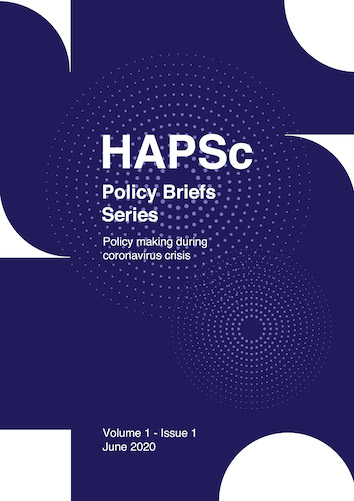The Importance of Sport for Development (SfD) for the Social Recovery of the 2020 Pandemic. Directions for Policy Makers
Abstract
In 2010, Kofi Annan supported that sports power must be used as an agent for social change (Kofi Annan Foundation, 2010). Sports are a great dynamic not only for social change to be realized, but also for development within high performance sport systems, as they can be a conduit to peace. Furthermore, sports contribute to personal, but also to community development as it can teach people the importance of team and co-existing. During the 21st century, many important initiatives have been taken place aiming to boost the field called Sport for Development (SfD); nevertheless, different types of crisis such as financial (Földesi, 2014), and COVID-19 crisis (Wong et al., 2020) globally have complicated the development work that uses sport as a tool for various desired outcomes. The 2020 pandemic agitated the international community and made it difficult for sport activities to be operated. The quarantine periods and the various enforcement, laws, policies and recommendations have anecdotally caused more serious harms to groups of people (demographics like women, children, adolescents) (Bullinger et al., 2020). Individuals, especially women and kids were trapped during the quarantine with their abusers, having limited access to help and social activities; activities that aim to empower people, develop their skills and critical thinking. The current paper examines the SfD field and its importance for social development; briefly describes the effects of the lock down on the maximization of abuse, racism and discrimination and finally, proposes directions to be taken into consideration by policy makers so as to minimize the aforementioned phenomena and at the same time strengthen the SfD field.
Article Details
- Zitationsvorschlag
-
Kantartzi, I. M., & MacIntosh, E. (2020). The Importance of Sport for Development (SfD) for the Social Recovery of the 2020 Pandemic. Directions for Policy Makers. HAPSc Policy Briefs Series, 1(2), 102–108. https://doi.org/10.12681/hapscpbs.26480
- Rubrik
- Articles

Dieses Werk steht unter der Lizenz Creative Commons Namensnennung 4.0 International. Authors retain copyright and grant the journal right of first publication with the work simultaneously licensed under a Creative Commons Attribution License that allows others to share the work with an acknowledgement of the work's authorship and initial publication in this journal.




